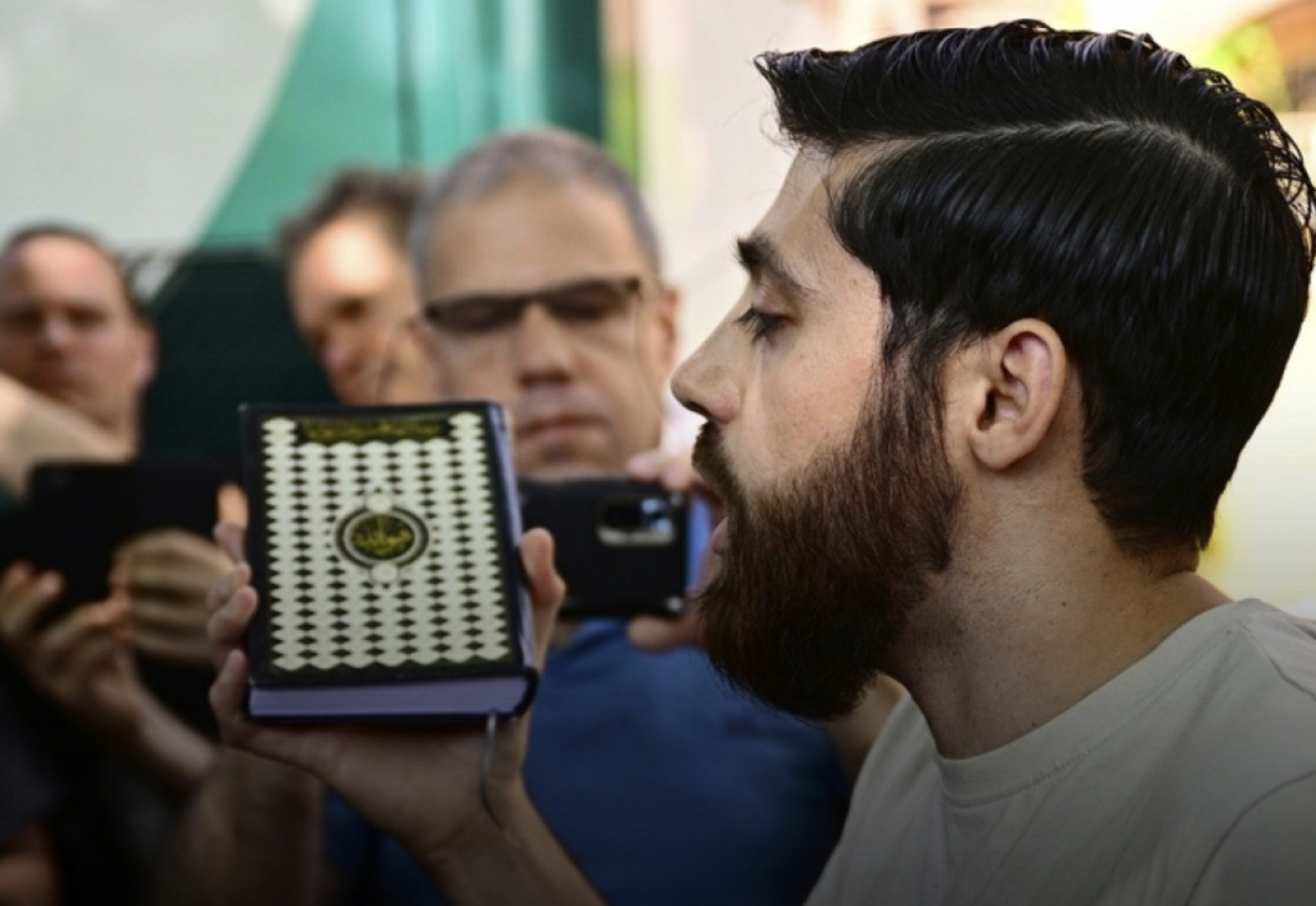Previously, Swedish courts permitted the burnings citing that the right to freedom of assembly, expression, and demonstration was protected by the constitution.
A Muslim Swedish man of Syrian origin who was given permission to set the Torah and the Bible on fire outside the Israeli embassy did not go through with his plan, according to Swedish media reports on Saturday.
In a surprising turn of events, Ahmad Allus opted instead to demonstrate against the growing trend of desecrating holy books.
The 32 year-old had gained approval from Stockholm police to hold a limited protest involving three people. However, instead of carrying out his initial intent, Ahmad chose a path of peace, symbolically throwing a lighter to the ground rather than igniting the holy texts.
“I never thought I would burn any books. I’m a Muslim, we don’t burn [books],” Ahmad said to the small assembly gathered in anticipation of the event, as quoted by broadcaster SVT.
He further explained that his real motive for organising the protest was to highlight the distinction between the freedom of speech and the disrespect to other ethnic communities. “This is a response to the people who burn the Quran. I want to show that freedom of expression has limits that must be taken into account,” Ahmad voiced his concerns.
Emphasising the importance of mutual respect in a shared society, Ahmad warned about the potentially dire consequences of religious desecration.
“If I burn the Torah, another the Bible, another the Quran, there will be war here. What I wanted to show is that it’s not right to do it,” he added.
The protest came in the aftermath of an incident last month, in which an Iraqi immigrant set fire to pages of the Quran outside a Stockholm mosque during the Muslim holiday of Eid Al-Adha.
The action elicited global condemnation from Muslims and prompted an investigation by Swedish authorities over “agitation against an ethnic group” despite local police giving him the green light to carry out the desecration.
The incident also sparked a diplomatic crisis as Iraq, Kuwait, the United Arab Emirates, and Morocco summoned Swedish ambassadors.
It further prompted an emergency meeting of the 57-member Organization of Islamic Cooperation and called into question Sweden’s efforts to join NATO, following a similar demonstration held by a far-right activist outside Turkey’s Embassy in Stockholm earlier this year.
The UN’s leading human rights body responded this Wednesday by overwhelmingly approving a measure that calls on nations to step up their efforts to combat religious hatred in the aftermath of the Quran burnings.
The Swedish government, while condemning the Quran burning as “Islamophobic,” also recognised the “constitutionally protected right to freedom of assembly, expression and demonstration” in the country.







